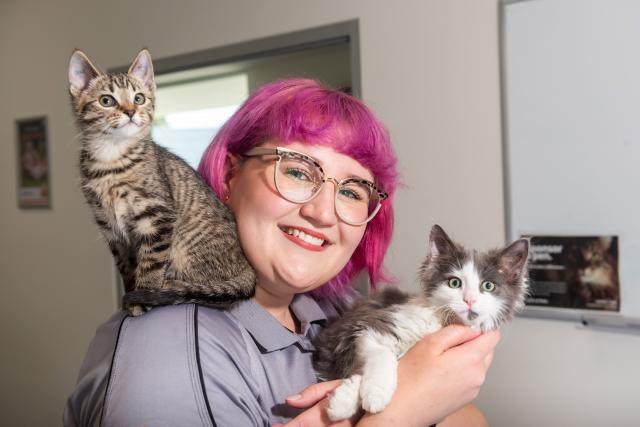
Cat desexing can be quite costly for individuals on a pension or with some type of concession but Upper Yarra residents are being offered some help.
Animal Aid is proud to be delivering free desexing, microchips and health checks to 100 female and 50 male cats at our Veterinary Clinic in Coldstream.
This program was made possible through the support of The Victorian State Government and Animal Welfare Victoria.
Places will be filled on a first come first served basis and all appointments must be booked via our vet reception on 8756 1300.
At Animal Aid our mission is to address animal homelessness and the number of unwanted pets in our community, this program is an exciting step in the right direction.
“We know that cost can be a huge barrier for our community when making the decision to desex their pets – this program will allow our community to access desexing and health services without the financial implications,” Animal Aid CEO Mark Menze said.
“Every year we see kittens having kittens, from only four months of age felines can become pregnant. This cycle has the potential to increase exponentially.”
Every year we see more and more litters of unwanted animals – we know too well the importance of desexing to stop the reproduction cycle.
To be eligible for the Free Desexing Program owners must hold a current Health Care or Pension Cards and reside in Knox, Maroondah, Yarra Ranges, Whitehorse or Murrindindi Council areas.
Our vision is to be leaders in animal welfare; proactively addressing animal homelessness and minimising the number of unwanted animals in our community. Desexing is central to this. We want to break down the barriers that have prevented people desexing their pets, price being just one of them.
This program has the potential to prevent 316,000 unwanted cats and kittens in our community over a four year period.
Cats can have two litters per year with three kittens on average surviving in each litter.
Kittens can reproduce from four months of age.
Based on this data one pair of cats can produce 2,107 offspring in four years
2,107 x 150 = 316,000 cats






